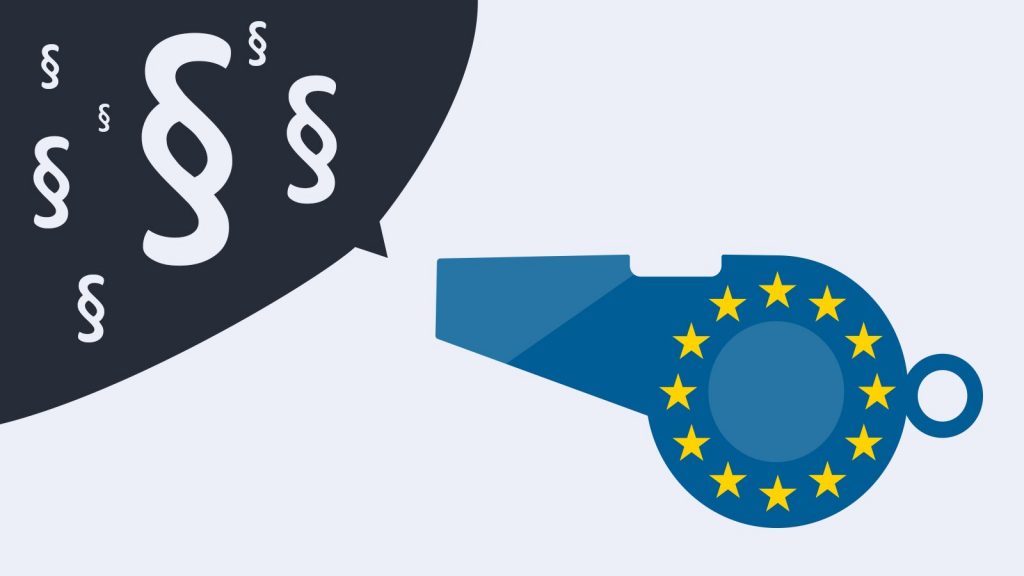The https://english.atlatszo.hu use cookies to track and profile customers such as action tags and pixel tracking on our website to assist our marketing. On our website we use technical, analytical, marketing and preference cookies. These are necessary for our site to work properly and to give us inforamation about how our site is used. See Cookies Policy
Hungary has finally started transposing the EU Whistleblower Protection Directive
In May 2023, the Hungarian Parliament adopted the Whistleblowing Act, which brings significant changes for those individuals, who wish to report unlawful or corrupt practices of private or public sector organizations.
The adoption of the new legislation was an obligation for Hungary set out in a European Union directive (EU Whistleblowing Directive). However, the transposition of the EU regulation into Hungary’s legal system did not go smoothly. Whistleblowing is closely related to the fight against corruption, yet the European Commission did not include the adoption of this law among the so-called “supermilestones”, which represent the conditions for unlocking the funds froze by the EU. That might be among the reasons why the Hungarian government did not rush with the transposition of the whistleblower protection directive.

Instead of meeting the deadline of 2021, the Hungarian Government submitted the bill earlier this year for the Parliament. While some other EU member states also tried to postpone the harmonization process, none of them displayed this level of disinterest, as the Hungarian legislative bodies in this matter.
During the legislative process, there was a revealing detour that served exclusively the government’s political communication purposes: in the originally submitted bill – deviating significantly from the regulatory concept of the EU directive – there were a set of grounds for reporting named “protecting the Hungarian way of life”, which were included alongside reporting corruption cases.
The bill, presented by Justice Minister Varga Judit, provided concrete examples to illustrate cases of violation of the “Hungarian way of life,” such as questioning the “constitutionally recognized role of marriage and family” or questioning the “right of children to identify him/herself with their birth gender.”
Unsurprisingly, these parts of the legal text were criticized by the EU, and after a political veto by Hungarian President Katalin Novák, they were ultimately removed from the final version of the law. The apparent intention was to blur the line between corruption cases and the abovementioned identity-driven scenarios, so the government could present itself as a defender of public interest.
The political communication strategy worked, and in the public debate, the focus shifted to the protection of the “Hungarian way of life”, a narrative, that was more favorable to the governing party. This way, the government didn’t have to explain itself for the significantly delayed anticorruption regulations, that should have been adopted a long time ago.
Based on these events, it is indeed difficult to sense the government’s enthusiasm and commitment towards whistleblower protection measures.
Why does whistleblower protection matter?
The Hungarian people’s willingness to report perceived corruption cases is extremely low, and there can be several reasons for this:
- a) Fear of retaliation: whistleblowers may be afraid of facing disadvantages, such as losing their jobs, as a result of reporting corruption or other irregularities.
- b) Perceived ineffectiveness of reporting: some whistleblowers may not believe that there will be any consequences, as they doubt that the authorities will take the necessary actions based on their reports. If they do not believe in that reporting will lead to any meaningful changes, they may question the meaning of taking any risk with reporting illegal actions.
- c) Cultural factors: It may be worth diving into the depths of the Hungarian psyche. Unlike in some other nations, in Hungary, the general opinion suggests, that reporting is morally reprehensible, which view appears in plenty of widely used proverbs as well.
These factors contribute to the reluctance of individuals in Hungary to come forward and report illegal practices.
Despite all of these causes, the Hungarian Prime Minister “promoted” whistleblowing several times during parliamentary debates, and urged those opposition representatives who accused the government with corrupt practices, to report any violations that comes to their knowledge.
Now let’s see how this new piece of law supports our fellow countrymen, who have a developed sense of justice.
How does the new legislation help whistleblowers?
As we stated earlier, it would significantly increase the effectiveness of the fight against corruption, if whistleblowers could be confident, that they won’t face any negative consequences and that their reports could lead to a proper investigation. To address these legitimate needs, the new act orders the affected organizations to adopt the following measures
- a) All private and state-owned companies, with at least 50 employees, along with all state bodies and local governments, are required to establish internal reporting channels. Municipalities with a population below 10,000 are exempted from setting up the system, but entities subject to the anti-money laundering law, such as financial institutions, accountants, auditors, and law firms, are included even if they employ fewer than 50 people.
- b) These organizations must designate a person or unit responsible for receiving and handling the whistleblowing reports.
- c) Reports can be made either anonymously or indicating the whistleblower’s name. However, if the whistleblower cannot be identified, the affected organistation is not obliged to conduct any investigation unless the report indicates a “fundamental violation of rights or interests.” We believe that this provision weakens the effect of the legislation significantly, as the majority of the whistleblowers will likely prefer anonymous reports, and the law leaves the definition of “fundamental violation of rights or interests” open to interpretation. If the report is deemed to be of public interest (e.g., in the case of suspected corruption), it can also be made through the so-called “protected electronic reporting channel for reports of public interest.” This platform is operated by the Office of the Commissioner for Fundamental Rights, and the Office must ensure that, the organization that is affected by the report does not become aware of the whistleblower’s identity.
- d) If the report includes the name of the whistleblower, the reporting channel must ensure, that only authorized persons can access the whistleblower’s personal data. The law also explicitly states that the whistleblower cannot face negative consequences because of their report, particularly naming the termination of employment or reduction of wages. If however such violations do occur, and the employee takes legal actions, it is the employer’s obligation to prove before the court, that the measures were not taken because of the report.
- e) Organizations must respond to the report within 30 days, and obliged to take the necessary actions to handle any unlawful situations. It can involve initiating internal disciplinary procedures, or if the case falls within the jurisdiction of a public body, they should start the proceedings of that organistion.
What can be reported?
The law names two categories:
- a) Individual complaint: this aims to address violations of rights or interests of an individual, in case the resolution of the reported case does not fall under the jurisdiction of any other public procedure.
- b) Report of Public Interest: this form of report refers to those cases, that affects the interests of a community or the entire society. Typically, corruption cases fall into this category, making it the more frequently used form of reporting.
So overall: is it a progress or not?
Hungarian NGOs Transparency, K-Monitor, and TASZ already made an assessment when the first version of the bill was published in March 2023. Átlátszó agrees with the main findings of these organizations: based on the final version of the act, it is evident that the government’s aim was to only incorporate the bare minimum required by the EU directive, which cannot be considered too strict in the first place. Moreover, even these minimal measures are being implemented with significant delay. For example, local governments and state bodies recieved an exemption from the general 2023 deadline, and they only have to set up their reporting channels until 2025.
However, the law can be seen as progress, mainly because a significant number of privately and state-owned organizations will have numerous tasks related to establishing the reporting channels, which will bring this issue into focus, at least during the implementation period. These organizations will be required to develop new internal policies or review old ones, which can contribute to active dialogues within the organizations, which could help alleviate the lack of information and taboos surrounding the topic. However, there is a fear, that most organizations will perceive these legal obligations as an unnecessary burden, resulting in no actual change in the organizations practices, only producing a lot of documents, which don’t have any real life effects.
After all, the true impact of the new legislation will depend on the potential whistleblowers’ actions. So the key question remains: do citizens trust the state, that it will handle reports according the spirit of the law, and they will be preserved from any negative consequences of reporting?
Written and translated by Balázs M. Tóth. Hungarian version.

